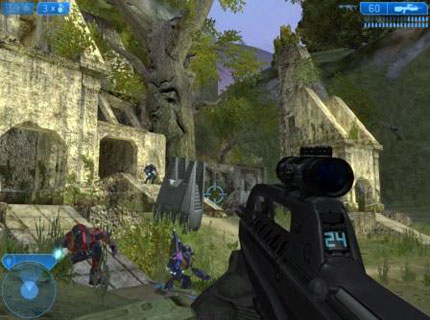 In this post I am having a long-form discussing about a particular videogame with a childhood friend of mine and fellow blogger, Bibliosimius. In this 2 parter we discuss our mutual affection for the game ZZT and it's profound impact on our underdeveloped teenage minds. Part Un, in which we discuss the influence of the aesthetic of ZZT and more, can be found here.
In this post I am having a long-form discussing about a particular videogame with a childhood friend of mine and fellow blogger, Bibliosimius. In this 2 parter we discuss our mutual affection for the game ZZT and it's profound impact on our underdeveloped teenage minds. Part Un, in which we discuss the influence of the aesthetic of ZZT and more, can be found here.B'simius adds his $.o2:
That's given me another thought. We learn visual art, creative writing, mathematics, "citizenship", all compulsorily in school. What about programming? One could argue that it'd make a good addition to the basic curriculum to give kids a general introduction to the very basic basics of how it all works. Using computer programs is increasingly becoming a part of schooling these days, but what about understanding how they're made? Not so much.
Ben:
Wow, that's such a brilliant idea! I think that kids would also really be into it - I know I would have been. But then again, I was a massive nerd, so... I'm sure there'd need to be classes tailored to skill levels much like the maths and sciences.
You're right that knowing how to use them is about 100 times more important than knowing stuff like how a Hard Disk Drive works (hey, I was under the mistaken impression that there was no magnetism involved until just recently, and I'm OK), so maybe school computer classes should be teaching fundamentals of programming. It also makes sense, because students are currently being taught stuff like how to use specific software packages like Microsoft office and Photoshop, etc, which all go out of date within a year or so. The ideas behind being able to understand programming are so much longer lasting though.
B'Simius:
Absolutely. It comes down to whether we want kids to grow up as good little mechanoids in the social machine or to be informed individuals who actually know how stuff works, and not just how to work it. We want new generations to avoid hardware problems which could be resolved with the dual typicals "Have you tried turning it off and on again?" and "Are you sure it's plugged in?" Understanding basic programming principles could alleviate similarly ridiculous problems with software.
I haven't thought about it from this perspective before, but understanding the basic ZZT-OOP programming paramaters and commands has probably helped me understand a fairly diverse range of electronic applications. I'd be interested in any kind of study into whether understanding the basics makes the complexities more intuitive. I'd more than tentatively guess that it does.
Ben:
Mmm, good points. I don't think it's just an age thing either. My nana in her 80's got her first ever mobile phone recently, although I guess that is more an extension of an existing older technology, but my other grandmother is getting a laptop too, so she can get on the internet.
So, to segue into a neat conclusion - what's the single best thing about ZZT? The Aesthetic? Teaching Programming? Creative Potential? Or even the community of programmers and storytellers that grew up around it?
B'simius:
I'd say that the single best thing about ZZT is all the good times it gave us - it was fun; fun to learn how to use it, fun to collaborate, fun to work individually, fun to share... but that's a matter of opinion. There's a lot in ZZT for a lot of different types.
Single best feature in your opinion?
Ben:
For me probably the creative outlet aspect. I really need to have something like that and ZZT was the first ever thing where I could just be creative without being constrained by lack of skill or talent or equipment or something =P
It's not like there weren't constraints on ZZT (in fact there were lots) but it was the first real "medium" or toolset I ever managed to come to grips with enough to get to the stage of being able to make something that was meaningful to me.
And on that note, thanks for taking a stroll down memory lane with me, B'simius! Feel free to blog about the experience and how librarians can use Facebook threaded conversations, etc on your own blog. And dear readers, may I also encourage you to check out Bibliosimus sometime in the future too.
-------------
That's all for my two part discussion with B'simius, however if people find this format at all interesting (and I quite like it myself) then look out for more posts in a similar vein. If you're looking for Part Un, in which we discuss the influence of the aesthetic of ZZT and more, it can be found here.
Random ZZT Linkdump:
ZZT @ YTMND.com
ZZT In retrovision article at Gay Gamer
Official Wikipedia article on ZZT





